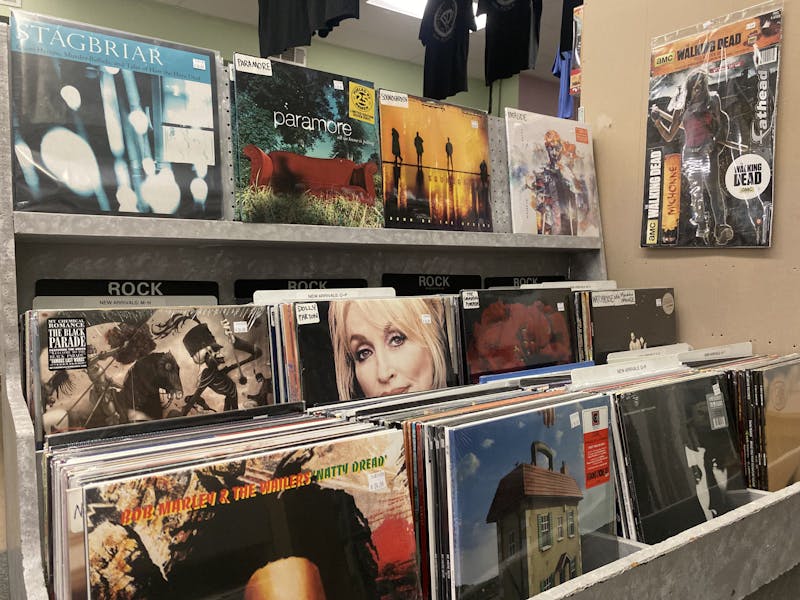It’s 2018, and we have found ourselves in a revolution of gender equality. No longer are women allowing a blind eye to be turned to the men who grope them on the subways or the coworkers who “harmlessly” make passes at them too many times for comfort. Celebrities once beloved by many are having to reckon with the consequences of their past indiscretions, and their fans are having to reckon with the trauma of losing yet another fallen star in disgrace. And while this most recent revolution started out in the hands of the rich and famous, they have consequently opened up a space for many women to feel courageous and safe enough to share their stories and voice their complaints as well. It turns out — although this likely won’t come as a shock to many — that these goings-on aren’t just limited to the star-studded Hollywood streets; they are pervasive throughout endless industries and workplaces. So as us fellow college students and recent graduates are searching for jobs and entering the workforce, how can we begin our professional careers while ensuring that we are being treated equally and appropriately?
As a student and a manager in a male-dominated field, Julia has had to spend time thinking about and dealing with such issues. Having become only the second female manager of her media company, Julia says that it was much a “boy’s club” before. This workplace culture that she walked into allowed sexual harassment to go un-addressed for some time.
One long-standing member of the company, Lance, made workplace experiences particularly uncomfortable for all of the girls who worked there.
“He would always be making inappropriate comments about women, like one time he yelled at me to ‘suck [his] d***‘ in front of my staff in an interest meeting. He would always make comments if girls come in, like ‘ooh nice tits’ and other comments like that, nonstop,” Julia explained.
They would complain to the male manager, and while he wouldn’t condone Lance’s behavior, he did nothing to stop it..
When a woman, Mia, was hired as manager a few months later, however, the girls of the organization came together yet again to complain. This time, it was heard.
“When we told Mia, she acted immediately. As soon as I had told her about two instances that had happened back to back, the next day she had already called every female staffer and it was done within like a week of her finding out and him being fired,” Julia said. “Whereas the former male manager, we would tell him all the time, and he would be like, ‘well Lance is just an a******’ and it was just because he was very talented. But the female staffers are very talented, too, and a lot of girls left because of it.”
What further disheartened many of the girls was that, when they put his firing up to a vote, every girl in the organization voted to fire him, each citing personal accounts of harassment, and every single one of the guys opted not to vote at all, as they felt it wasn’t fair to vote since it hadn’t happened to them.
“That was just a little disheartening to see that a lot of these guys that I’m friends with and I work with wouldn’t vote [to fire] some guy who was a known sleaze-bag,” Julia said.
Workplace culture can become toxic, especially when issues aren’t addressed or handled properly. And since the workforce spends a good portion of their lives surrounded by their coworkers, it’s important that an environment of mutual respect, honesty and equality are cultivated, both for the well-being of the employees as well as the organization’s success.
On the opposite side of the spectrum is Leah Grubb, a USC graduate from the Moore School and a current employee with SAP, a Fortune 500 company.
SAP is a business software solutions company, and probably one of the larger companies that you’ve never heard of. They sponsor a lot of stadiums and sporting events, and they have customers and partnerships such as Coca Cola, Microsoft and IBM. And with their Fortune 500 status, they are rated as a fair work place for women, minorities, and people of varying sexual orientations.
They’re “a forerunner…with the initiative they have to decrease the gender pay gap and gender bias in the workplace,” Leah said. “At SAP, I’ve always had female leadership above me, and that has been an initiative as well. I think they have a board-level commitment as well to have a certain percentage of management positions to be women, so they really put out the corporate level commitment to decreasing the gender gap as well as the pay.”
While it might be unrealistic to expect any company to be perfect, what makes SAP’s practices admirable is that they take the initiative to continually ensure that their employees are being treated equally, and, if they’re not, they address the issue immediately.
“I think last year, at SAP, they did a study of their internal pay for their employees, and they were able to find that only one percent weren’t paid equally,” Leah said. “They paid that one percent that wasn’t being paid equally upward pay to make up for it. So it’s about following up on your actions and holding your company accountable.”
In terms of new employees or those seeking employment, “holding your company accountable” might not seem like an easy or even achievable thing to do. However, Leah emphasizes that one of the best things you can do for yourself in your career is in the interviewing and researching process.
“It’s all in the interview process and being proactive about it,” she said. “And making sure that you’re a culture fit for a company as well, and not just an experience-fit for the job, because you spend so much time at the workplace.”
This means that when you’re doing your research, you’re not just looking into the specifics of the jobs but also the whole environment of the company.
Be “looking more into their culture — what are they doing to empower women? What are they doing to decrease gender bias? And all of that stuff, you know, there should be something on it with that company. If they’re not talking about it, that’s a little red flag,” Leah said.
If you’re a man in the workplace, you might also feel like tough times are ahead of you in terms of workplace culture. However, the most important thing to do in these situations is to listen.
“I think a big thing is listening. Like shutting up and listening,” Julia said. “I don’t want your two-cents on how you think I should deal with it, or telling me to get over it or that it’s not a big deal, because it is, though. And I think, especially, a lot of men don’t realize how normal it is.”
And not only listening, but also elevating both the stories that women are sharing as well as the women themselves.
“Especially if you’re in a position of power, it’s important to help raise those voices that don’t normally have that,” Julia explained.
And if you are worried about seeming demanding or pushy, don’t let it deter you. Remind yourself of your right to demand fair circumstances, and revel in the term “bossy” as the highest form of a compliment.
People “always blame millennials for asking for too much … but why shouldn’t we be asking that stuff? Why can’t we be asking for more transparency?”
I think Leah has a point.
*Names and organizations changed for anonymity.



